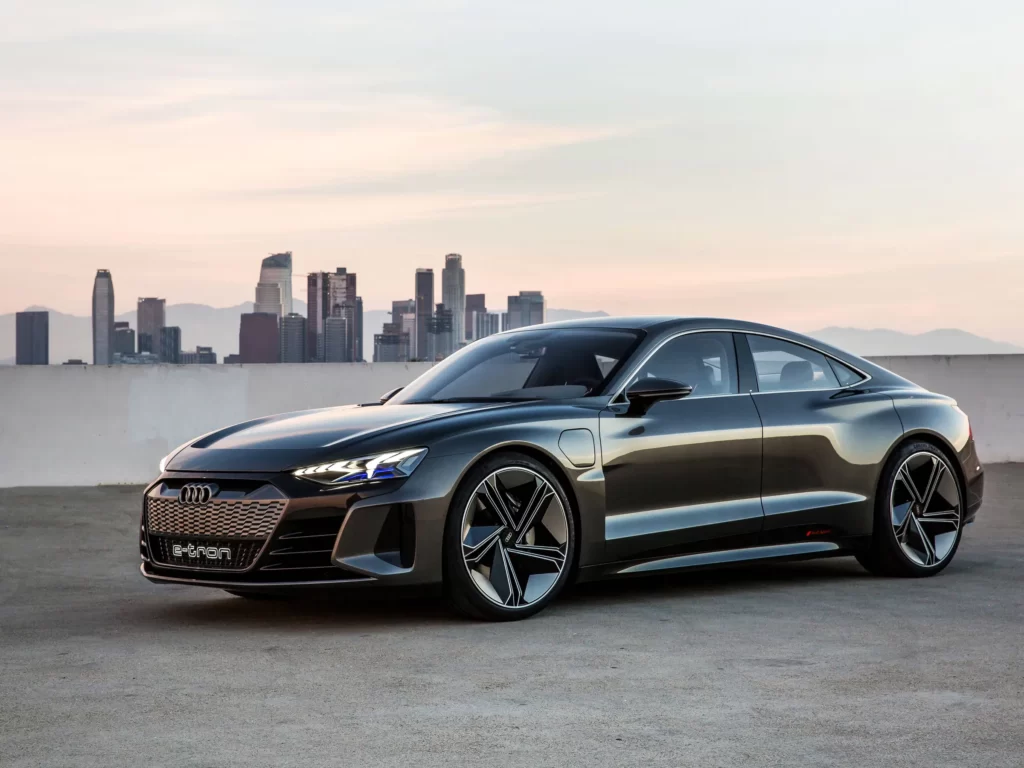Advantages & Disadvantages Of Electric Cars
Published: 21 Sep 2023
The modern world is stepping closer to the future, as Artificial Intelligence (AI) is replacing us humans in daily life activities. Another big leap towards the future ages is the production of Electronic Cars. Which is quite helpful for us but also has some disadvantages. Here is a complete guide about Electric Cars with their Advantages & Disadvantages:
What are Electric Cars?
Electric cars, also known as Electric Vehicles (EVs), are automobiles powered by electricity rather than internal combustion engines fueled by gasoline or diesel. They have gained significant popularity due to their environmental benefits and technological advancements. They are eco-friendly as they run on electricity instead of petroleum and they also save the fossil fuels. Here is how an Electronic Car looks like:-

An Audi e-tron GT
How Electric Cars Work?
Electric cars use one or more electric motors powered by rechargeable batteries to propel the vehicle. These batteries store electrical energy, which is converted into motion by the electric motor. Unlike gasoline cars, electric cars do not emit any harmful smoke or gases, making them a cleaner and more sustainable transportation option. For more information on how an Electronic Car works watch this video:-
Advantages of Electric Cars:
1. Zero Emissions:
Electric cars produce no direct emissions, reducing air pollution and greenhouse gas pollution. This tends to provide a better and cleaner environment for us to breathe in.
2. Lower Operating Costs:
Electricity is generally cheaper than gasoline, and electric cars have fewer moving parts, resulting in lower maintenance costs.
3. Quiet & Smooth:
Electric cars are quieter and provide a smoother, more responsive driving experience. They help reduce both noise and air pollution.
4. Incentives:
Many governments offer incentives, such as tax credits and rebates, to promote electric car adoption. Although this is not available in Pakistan yet, but we can expect many incentives from the government in the near future.
5. Reduced Energy Dependence:
Electric cars can be charged using a variety of energy sources, including renewable energy, reducing dependence on fossil fuels. Solar Energy can be used in this regard for a more reliable and better energy source which is also better for the environment.
Disadvantages of Electric Cars:
1. Limited Range:
Electric cars typically have a more limited driving range compared to gasoline cars, though this is improving with newer models.
2. Charging Infrastructure:
Availability and convenience of charging stations vary by location, and fast-charging infrastructure is still developing.
3. Long Charging Times:
Charging an electric car can take longer than refueling a gasoline car, especially with standard home chargers. It takes about 2 to 3 hours for an electric car to charge completely while it takes only a minute or two to fill up a gasoline car with fuel.
4. High Upfront Cost:
Electric cars often have a higher upfront purchase price, though this is decreasing as technology advances.
5. Battery Degradation:
Over time, the battery’s capacity can degrade, affecting driving range and potentially requiring costly replacements.
Frequently Asked Questions (FAQs):
1: What is an electric car (EV)?
A: An electric car (EV) runs on electricity, not gas.
2: How do electric cars charge?
A: They charge by plugging into outlets or charging stations.
3: How long does it take to charge an electric car?
A: Charging times vary from 30 minutes to several hours.
4: What is the range of an electric car?
A: Typically 100 to 300+ kilometers on one charge.
5: Are electric cars more expensive than gasoline cars?
A: Yes, they are usually pricier upfront, but cheaper to operate.
6: How long do electric car batteries last?
A: Typically 8 to 15 years, depending on usage.
7: Can electric cars be charged at home?
A: Yes, with home chargers (Level 1 or Level 2).
8: Do electric cars require special maintenance?
A: They have fewer parts, thus they need less maintenance.
9: Are electric cars environmentally friendly?
A: Yes, they produce zero emissions, but impact depends on electricity source.
10: What is the future of electric cars?
A: Electric cars have a promising future with tech advances and growth.
CONCLUSION:
Electric cars are a promising solution to combat environmental challenges and reduce our reliance on fossil fuels. While they come with challenges like limited range and charging infrastructure, their numerous benefits, including zero emissions and lower operating costs, make them a positive choice for a sustainable and cleaner future of transportation.
This BLOG is written by LGA CW-2 Student ASAD HASHMI.

- Be Respectful
- Stay Relevant
- Stay Positive
- True Feedback
- Encourage Discussion
- Avoid Spamming
- No Fake News
- Don't Copy-Paste
- No Personal Attacks

- Be Respectful
- Stay Relevant
- Stay Positive
- True Feedback
- Encourage Discussion
- Avoid Spamming
- No Fake News
- Don't Copy-Paste
- No Personal Attacks





